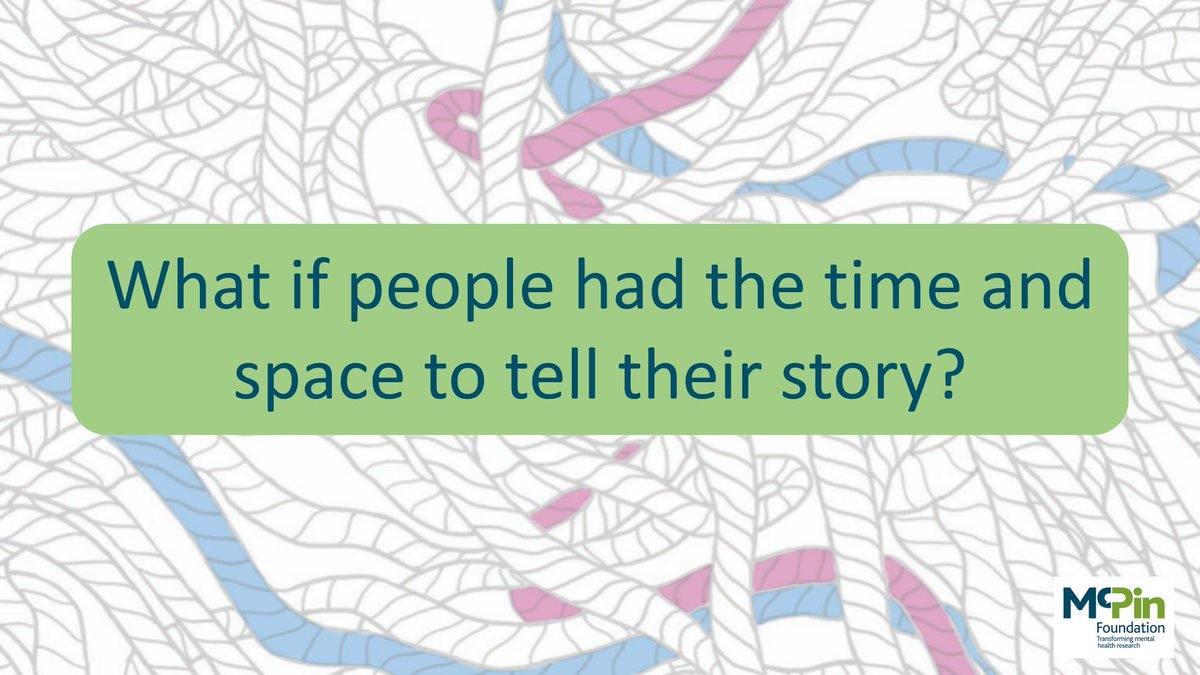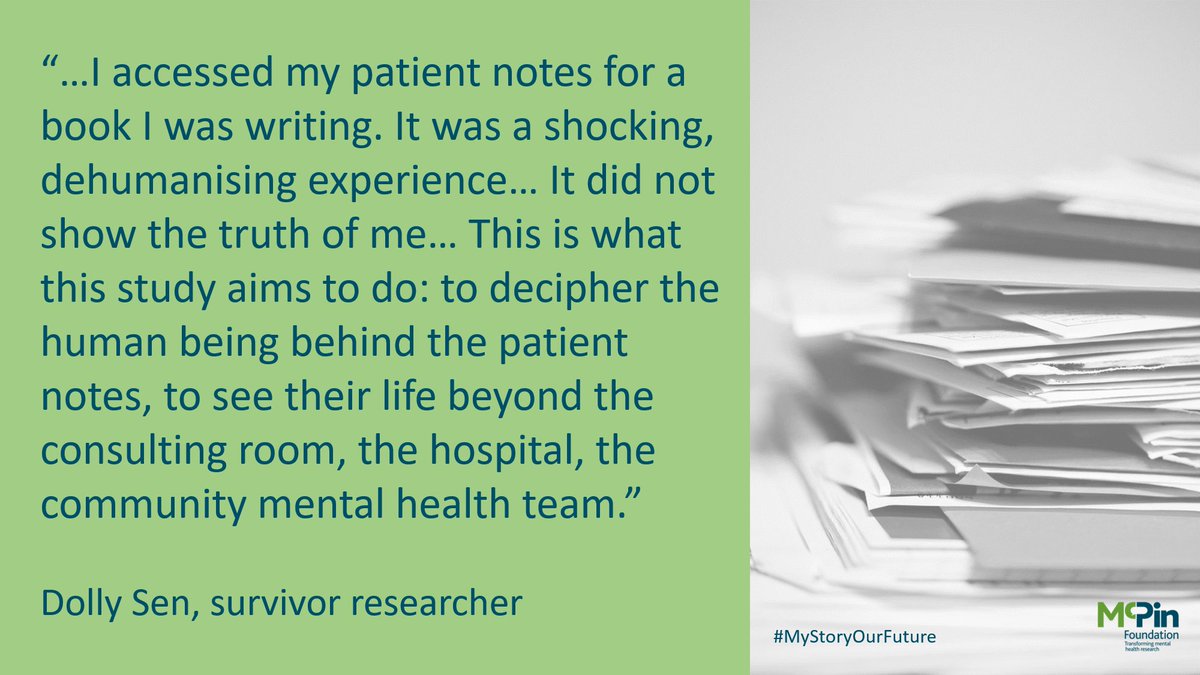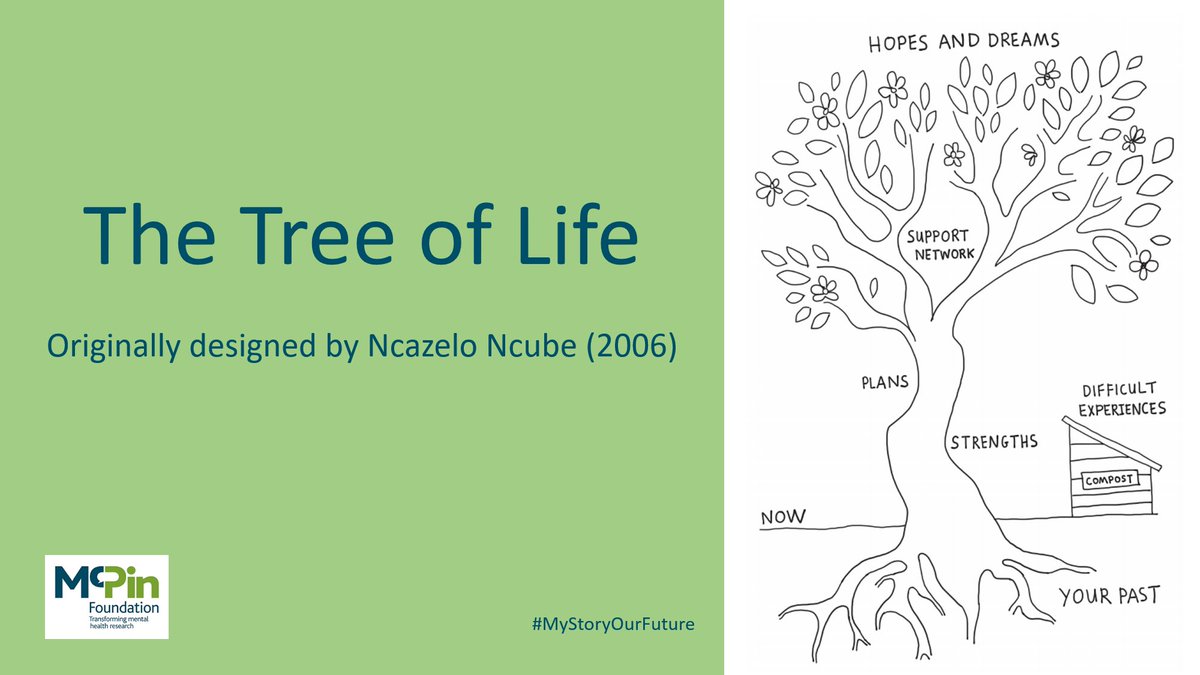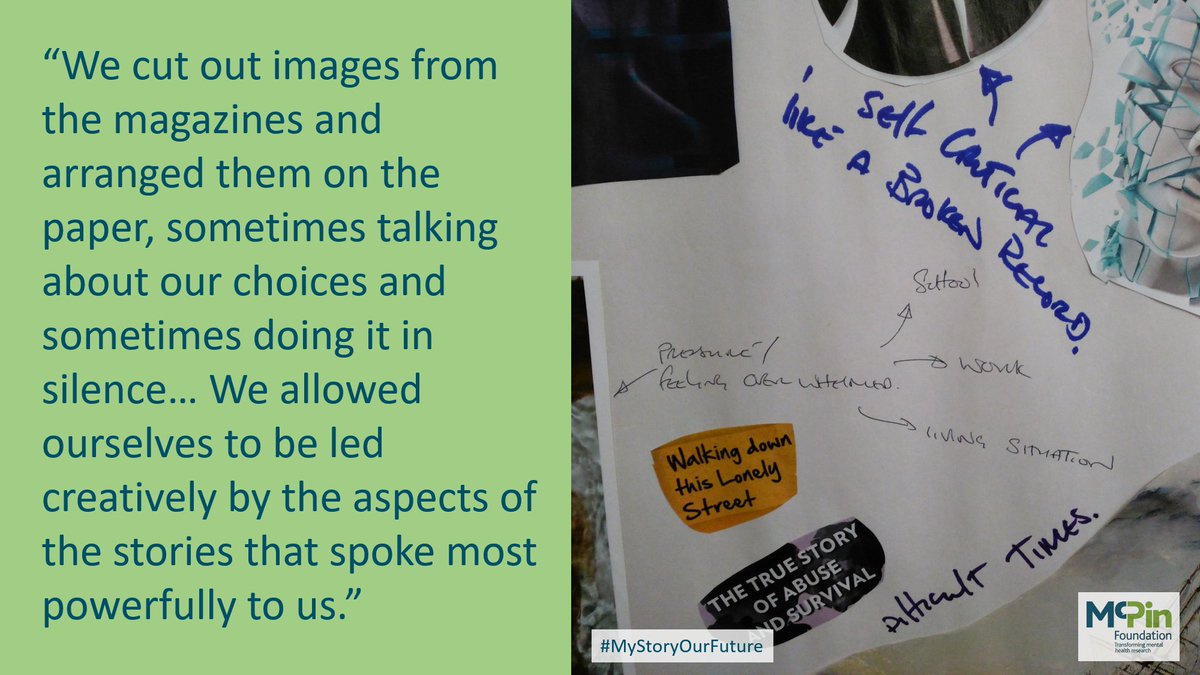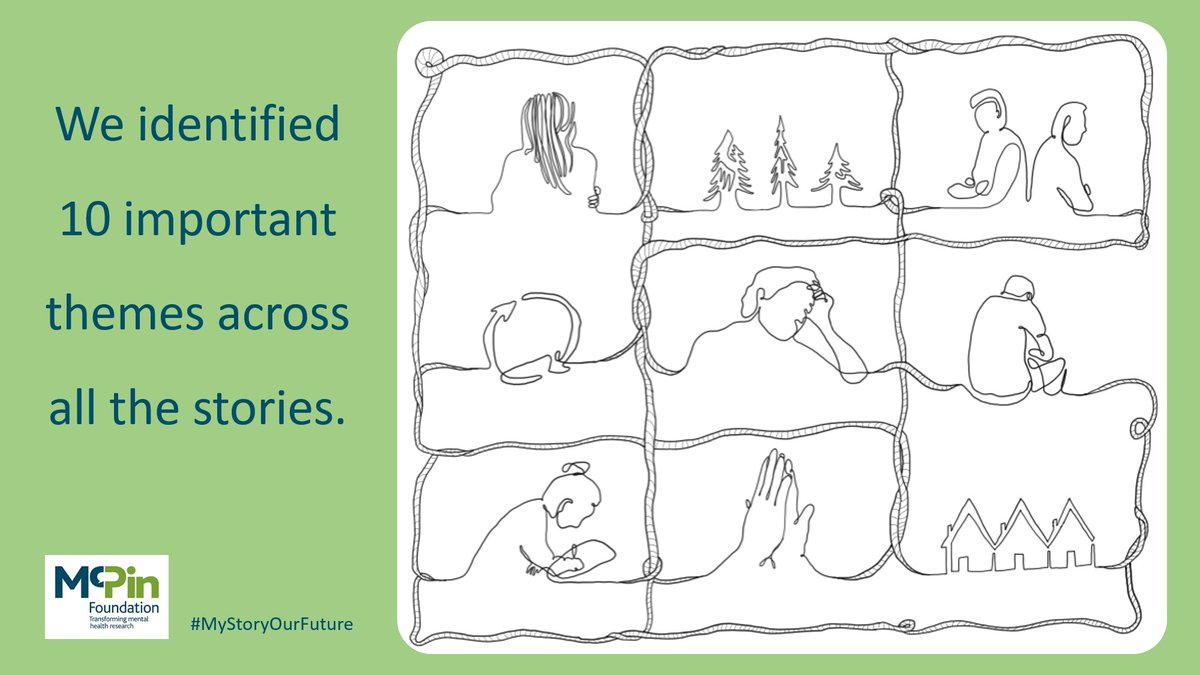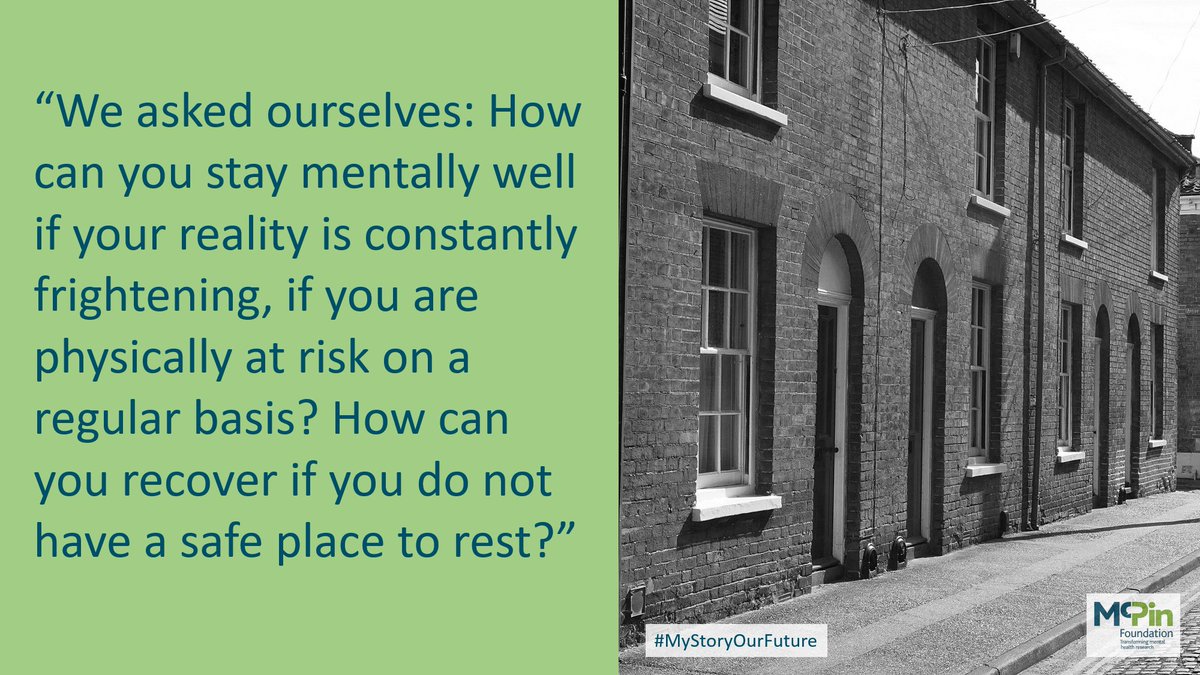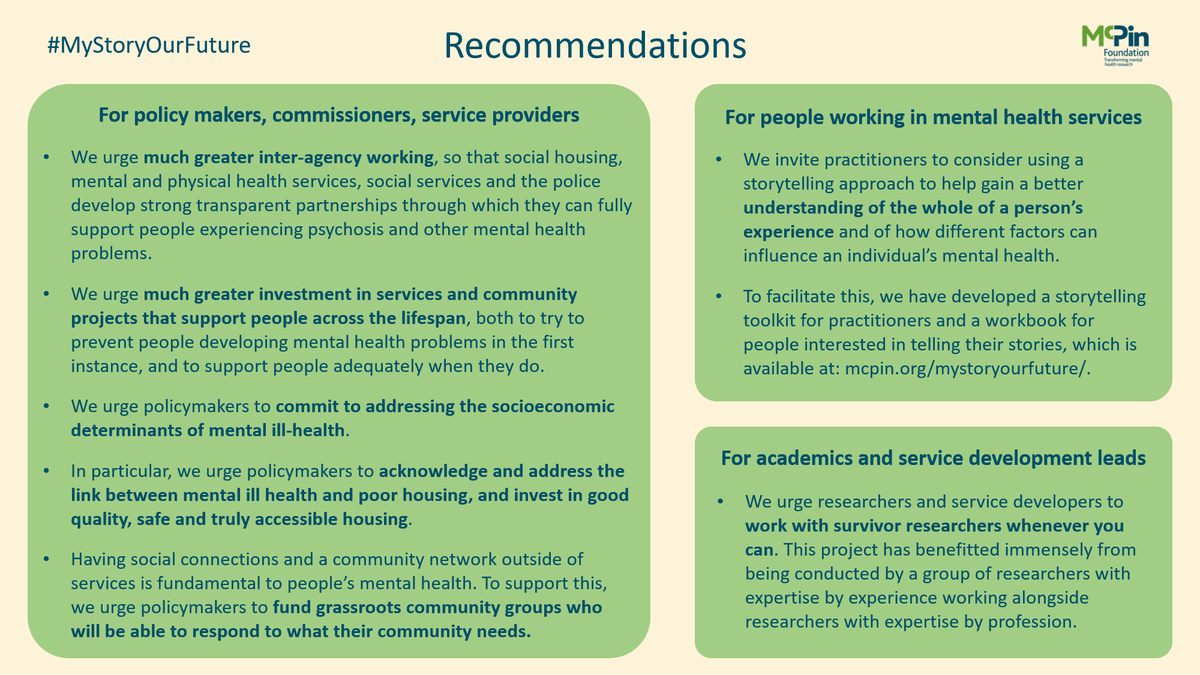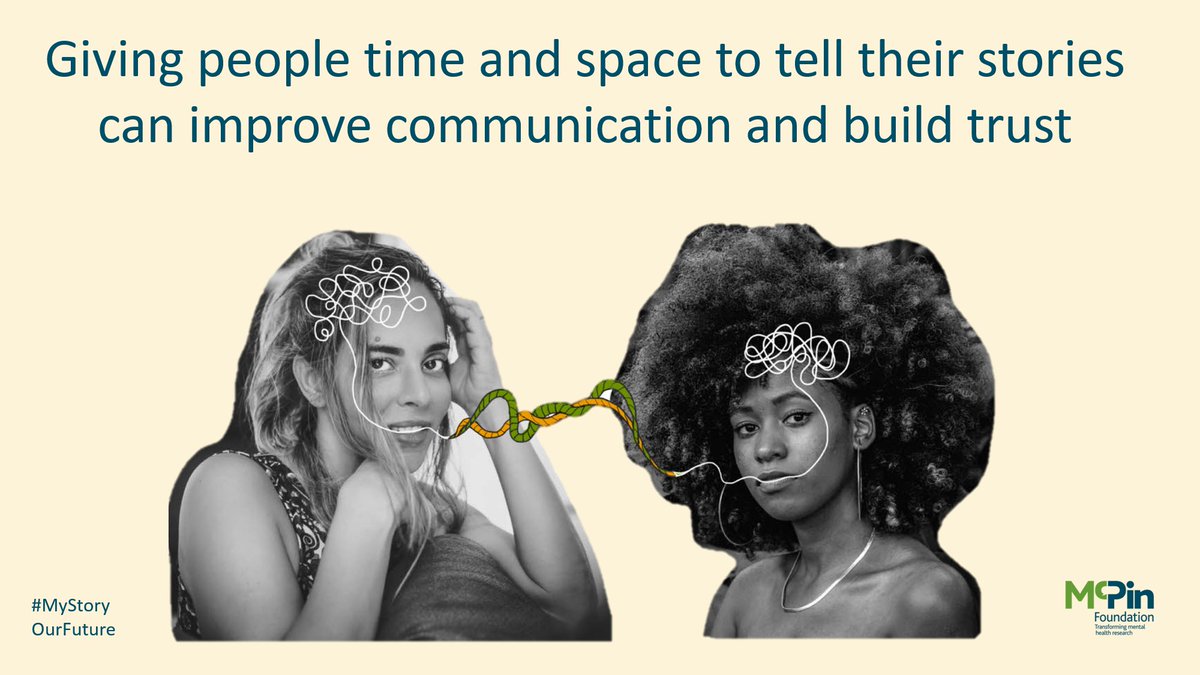What would happen if people were given the time and space to tell their story? Not just their story of a recent crisis, but as much of their story as they wanted to tell. Could this help us support people better and improve our understanding of #mentalhealth?
1/13
1/13
#MyStoryOurFuture is a project about stories and living with psychosis. We set out to hear people’s stories to help us understand what situations influenced people’s mental health. Our hope was that this may help us learn how to support people better. 2/13
We spoke to 14 people with personal experience of #psychosis or of caring for someone who does. We used visual resources like the Tree of Life to help people think about what parts of their story they wanted to tell and to keep private. 3/13
We worked with each person so they could tell their story on their own terms. This is important because storytelling can be draining, & even harmful if not done carefully or for the right reasons. We& #39;re still learning & are interested in understanding how to do this better. 4/13
We drew on techniques used in oral history, our own experiences of mental health and using services, and used creative methods such as collage and narrative analysis to help us better understand what people told us.
5/13
5/13
We did not see a single ‘typical’ story emerge. Instead we found a picture of people navigating through their lives in a variety of ways. People talked about specific challenges, individual skills & strengths, and held different hopes and aspirations for the future. 6/13
Through all the stories, we identified 10 ‘themes’ or important recurring patterns. These form the 10 chapters in #MyStoryOurFuture. We will be sharing some of these findings with you over the next few weeks. 7/13
Several stories highlighted the importance of safe and stable housing and the consequences for people who experienced unsafe or insecure housing, or who became homeless. Having a ‘home’, or a safe place to call home, was a fundamental need that was often not being met. 8/13
We also heard of people feeling unable to connect with others in their communities, of losing friends when they or their loved one became ill, or of being unable to make friends after moving to a new community. There was a deep sense of loneliness and isolation. 9/13
#MyStoryOurFuture showed just how connected a person’s social & economic environment is to their mental health. In doing so, this work adds a powerful voice to research that already exists, making this an urgent issue that cannot be ignored. Please see our recommendations. 10/13
We learnt about the value that a storytelling approach can have as a tool for communicating and building trust, something that could be helpful in research and in mental health services. 11/13
Find out more about #MyStoryOurFuture by visiting https://mcpin.org/mystoryourfuture/.">https://mcpin.org/mystoryou... You will find the report, a podcast, a workbook for people who want to tell their story and a resource pack for practitioners, as well as ways to feedback. 12/13
Thank you to our storytellers & everyone who made this possible. @DollyDollysen, @AlisonF101, Gary Coyle, Rose Thompson, @sam_recovery, Simon Clark, Victoria Glen-Day at @HealthyLDN, @Certitude, @MaudsleyNHS
Reports by White Halo Design & illustrations throughout by @myillumind
Reports by White Halo Design & illustrations throughout by @myillumind

 Read on Twitter
Read on Twitter